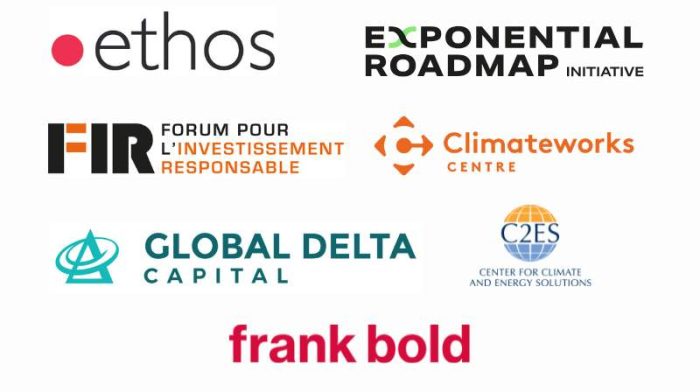A call for credible climate transition plans

Statement from the Transition Plan Collective Impact Coalition
The Paris Agreement set out a clear global mandate: limit global warming to 1.5°C* *Paris Agreement; Article 2, Paragraph 1(a) “Holding the increase in the global average temperature to well below 2 °C above pre-industrial levels and pursuing efforts to limit the temperature increase to 1.5 °C above pre-industrial levels, recognizing that this would significantly reduce the risks and impacts of climate change. and enable a just transition to a low-carbon economy. Large companies, particularly those with the highest emissions and influence, must now move beyond commitments and long-term targets to demonstrate credible and actionable climate transition plans (CTP).
Robust transition planning is essential not only to set actionable targets, but to embed climate considerations into core strategies, business models and decision-making processes.
While there is growing consensus on what constitutes a credible corporate transition plan, evidence shows many companies still fall short on key components identified in leading disclosure frameworks and assessment methodologies. Notably, some of these gaps concern basic, no-regret actions that any company would logically take to safeguard its future, regardless of climate concerns. If companies already assess the external factors that underpin their strategies, and dedicate financial resources to support them, why not apply the same logic to integrating climate considerations into their transition plans?
The Accessing Transition Plans Collective (ATP-Col) framework defines a credible transition plan as one that aligns with global decarbonisation goals, reflects relevant sectoral and regional pathways, and is realistically achievable within the proposed timeline. To help companies close the credibility gap, WBA’s Collective Impact Coalition is focusing on three persistent gaps identified in current corporate transition plans:
- Are companies using appropriate decarbonisation pathways, tailored to their sectors and geographies, to guide their transition strategies?
- Have they identified and addressed key external dependencies that could hinder their ability to deliver on their plans?
- Are they allocating sufficient financial resources to implement the plan effectively?
While these are not the only components of a credible transition plan, they are critical elements that must be addressed to move from plans on paper to real-world outcomes.
Unless companies address these questions, the private sector risks missing the transformational shifts needed to meet climate global goals and future-proof their operations, while increasing it’s exposure to transition-related risks.
As we move into 2026, the urgency is clear
The World Benchmarking Alliance (WBA) and members of the Transition Plan Collective Impact Coalition call on all companies from developed and emerging markets to act with urgency and transparency by developing and publicly disclosing credible climate transition plans that are grounded in evidence-based pathways, considering external dependencies, supported by transparent strategies and financial planning, and assessed by independent third parties.
What companies can be doing
A growing number of tools and frameworks are available to support companies in developing robust transition plans and equip a broad set of stakeholders to take action. The Transition Plan CIC will continue to provide insights, guidance and shared resources to help companies strengthen their approaches and improve accountability.
We urge all large companies to act now, disclose and implement credible transition plans. The time for transparency and delivery is now.
Participants as of September 2025:
Co-leads: Center for Climate and Energy Solutions (C2ES) and Global Delta Capital
Nat Keohane, President of the Center for Climate and Energy Solutions (C2ES), commented:
Business leadership on climate requires strong transition plans that set clear-eyed, targeted goals and account for the challenges in meeting them. We urge businesses to join the Collective Impact Coalition and raise the bar on what a credible corporate transition plan looks like: it’s grounded in evidence-based pathways, it considers external dependencies, and it’s supported with transparent strategies and funding.
Asha Mehta, CIO of Global Delta Capital, commented:
Peak emissions are only the beginning. The future will be shaped by how quickly we turn the curve downward. WBA’s Collective Impact Coalition is setting a global baseline to track progress for credible, actionable transition plans.
Signatories:

Interested in joining?
Contact Dara Karakolis, Engagement Manager: [email protected]